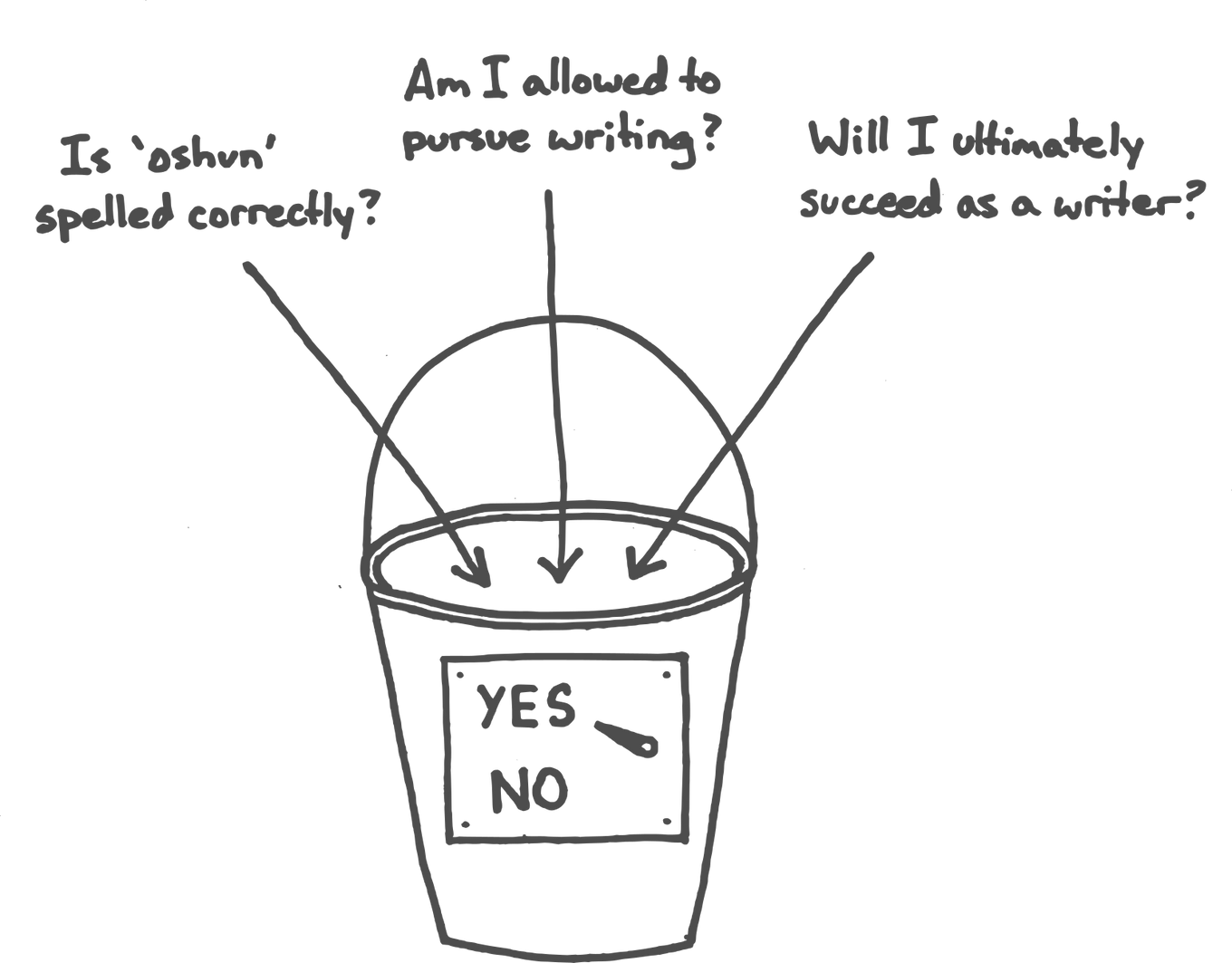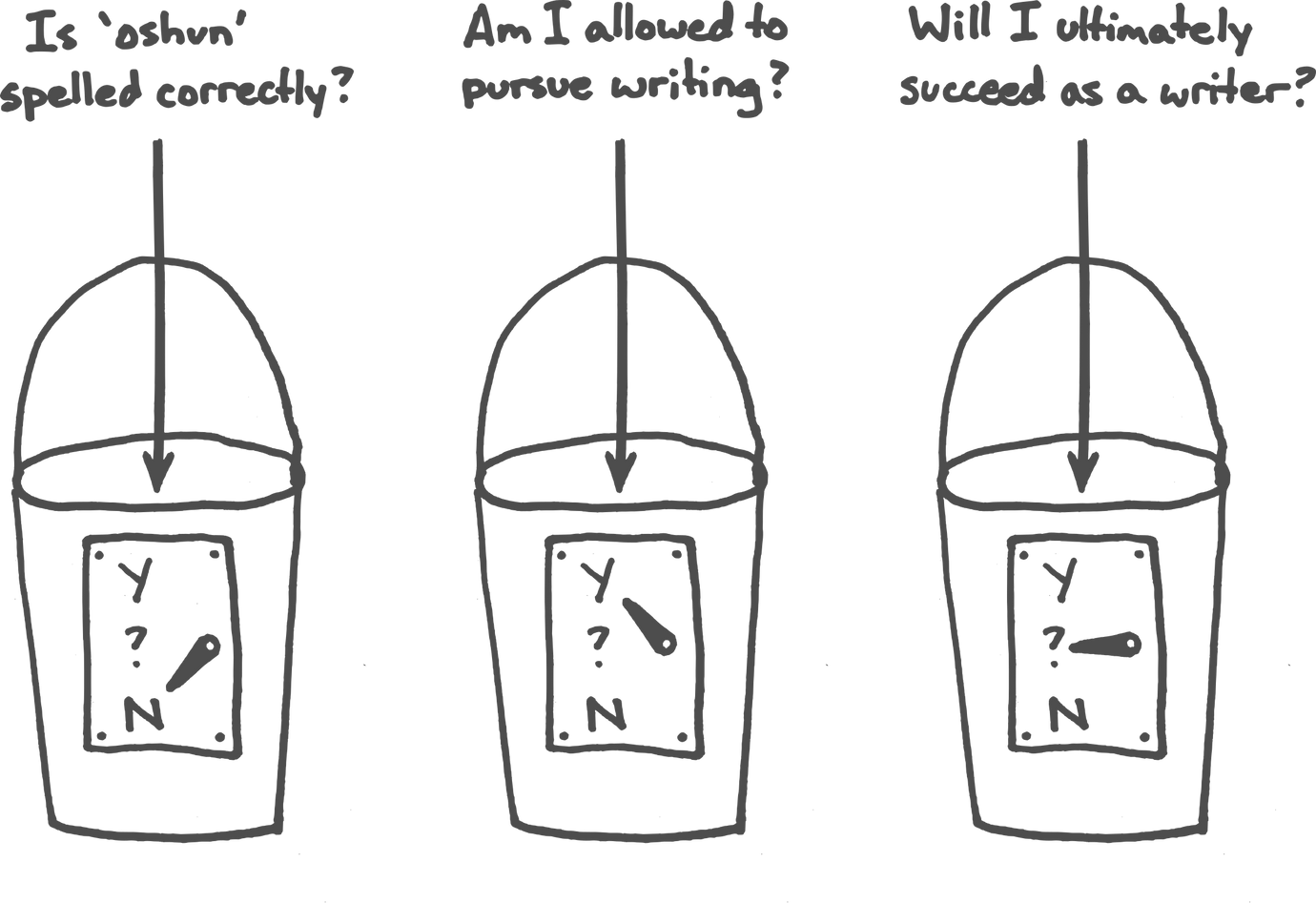...uplinks, including horizontal links to competitors or antipatterns
- Question Substitution
When you commingle evidence on different questions, you can end up updating in the wrong direction

Reality is delivering to you a constant stream of experiences, and most of the time you are categorizing those experiences into pre-existing mental buckets. Those buckets have titles like “do they like me?” and “is this a good idea?” and “what’s my boss like?” and “Chinese food?”
If you think of your mental architecture as being made up of a large number of beliefs, then the buckets contain the piles of evidence that lie behind and support those beliefs. Or, to put it another way, you know whether or not you like Chinese food because you can look into the bucket containing all of your memories and experiences of Chinese food and sum them up.
Bucket errors happen when you combine questions that don't belong together into a single bucket. This can happen because you have too few buckets or because you have unhelpfully-defined buckets. You can also have too many buckets, such that you can't form beliefs about important questions at all because there's no bucket for the evidence about that potential belief.
Questions to help guide you in noticing bucket errors:
- When you notice yourself flinching away from new information, ask yourself—what would be bad about taking it in? What would be the consequences of just believing X?
- When you notice your mind making connections like “if A is true, then B will be true too,” pause for a moment and reflect on just how strongly A and B are correlated. Is A actually a strong indicator of B?
- When you have the feeling that piece-of-information-M would force you to take action-N, take a moment to give yourself space. Notice that in many cases, you can consider M and retain freedom of choice about N—that you can simply not do N if it still seems like a bad idea after thinking about M.
- Notice when your distress feels like it originates in something like a need for consistency. For instance, if you don’t want to take the action of apologizing, because you don’t internally feel regret, be willing to question whether apology actually requires contrition, or whether you can say yes to one without necessarily saying yes to the other.
Therefore:
Attend to the number and composition of your evidence buckets.

downlinks
- Representativeness
- Scope Insensitivity